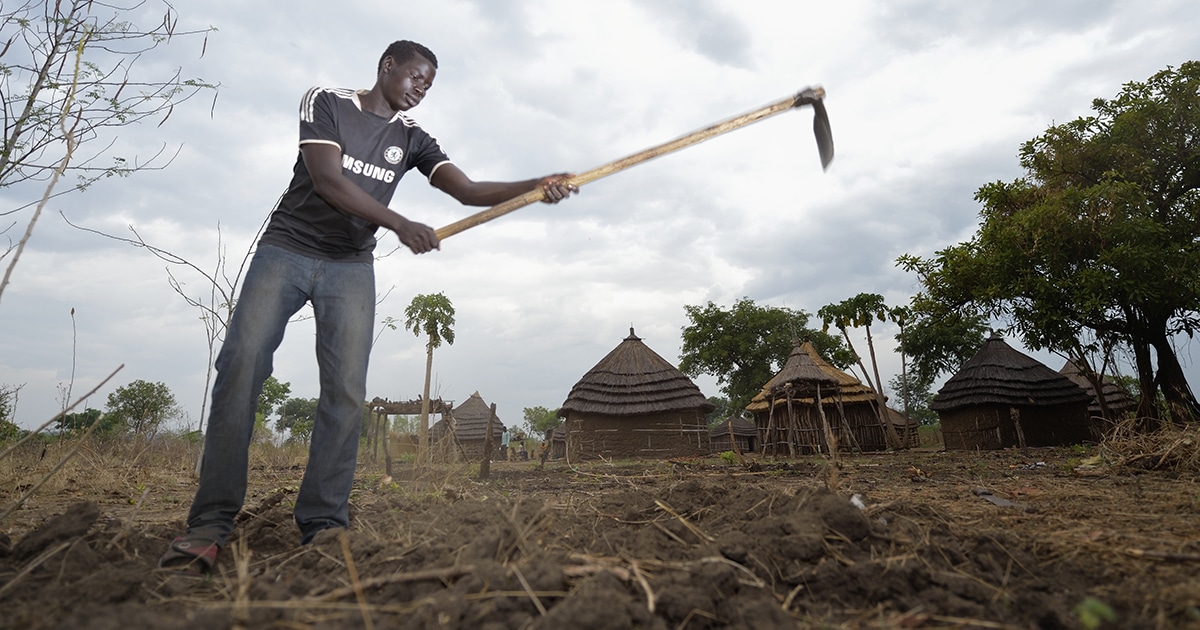When disaster strikes—whether natural or human-caused—one of the biggest risks to people living in the affected areas is food security. Floods and hurricanes can quickly wipe out farmers’ crops, while refugees fleeing from war and conflict find themselves in new and unfamiliar lands, often without tools to grow food.
As a member of the ACT Alliance, the Primate’s World Relief and Development Fund (PWRDF) seeks to help those impacted get back on their feet. Working through the Canadian Foodgrains Bank, PWRDF supports small-scale farmers by providing seeds, tools, and education in new farming techniques to help them recover after emergencies or conflict.
By purchasing a gift through the Gifts for Mission 2016 gift guide, Canadian Anglicans can help a farmer replant after an emergency. Each $50 gift supports PWRDF’s work to enable a family in need to restart their farm.
To ensure resources go where they are most needed, PWRDF humanitarian response coordinator Naba Gurung consults with affected communities and partners after receiving concept papers and proposals.
Partners on the ground must conduct a proper assessment to ensure that the response is timely and effective. After Hurricane Matthew struck Haiti, for example, aid efforts had to take into account whether seeds could be planted in the current season.
In some cases, such as the aftermath of a flood in Bangladesh, providing seeds is the most important way that PWRDF can help farmers replant. But they must ensure that the seeds are used for their intended purpose, which can be an issue when food security is particularly dire.
“If there is no food, then the seed might be then consumed as a food,” Gurung said. “So that is one thing that we need to be careful about.”
Tools are another significant form of aid. In South Sudan, where internally displaced people were able to find land in host communities but did not possess the necessary equipment for farming, PWRDF and its partners provided tools such as axes, spades, and machetes. In Nepal, tools such as hammers helped repair damaged infrastructure related to farming.
Education in different farming techniques, such as encouraging farmers to grow more vegetables alongside their staple crops, varies depending on each case. PWRDF and partners may help gather people from the neighbourhood together, or encourage them to visit and learn from individuals overseeing what Gurung described as “model farms”.
“It’s someone who is a little bit ahead of the game,” he said, adding, “If I am a kind of lead farmer and I’m doing something better, then the project encourages others to come there and see what that farmer has done in terms of producing vegetables … That way they learn from each other.”
The ACT Alliance is currently planning to expand efforts to help Burundian refugees in northwest Tanzania. In recent years, UN agencies in East Africa that provide the majority of support to refugees have faced notable funding cuts.
Through ongoing aid efforts, PWRDF and its partners hope to maximize their impact on improving the well-being of area refugees, Gurung said.
“More and more, there are common strategies to help refugees to become self-sufficient … in terms of food, and to help them integrate with the local economy.”
Help a farmer replant after an emergency through Gifts for Mission.
Interested in keeping up-to-date on news, opinion, events and resources from the Anglican Church of Canada? Sign up for our email alerts .

